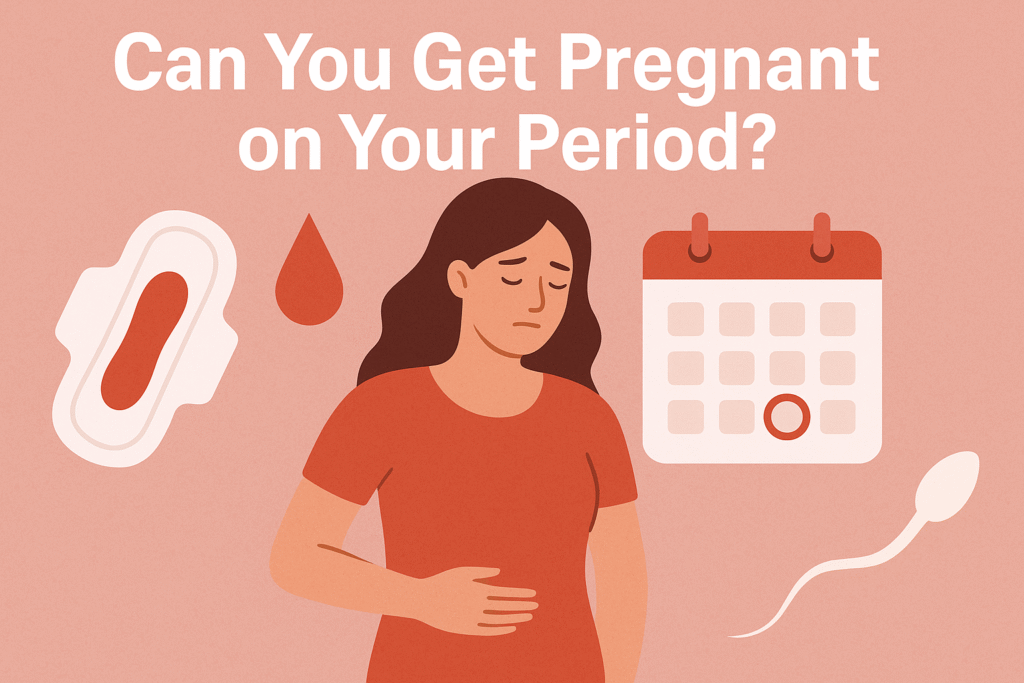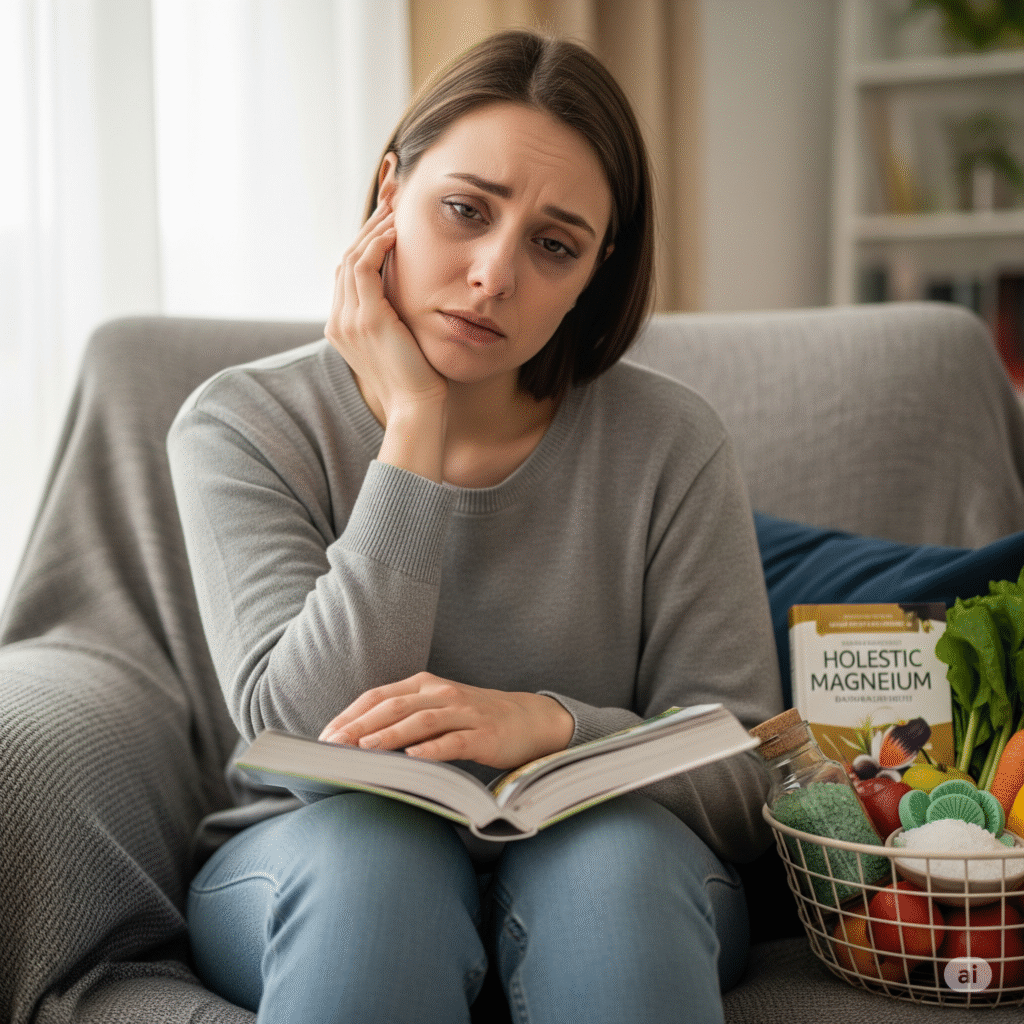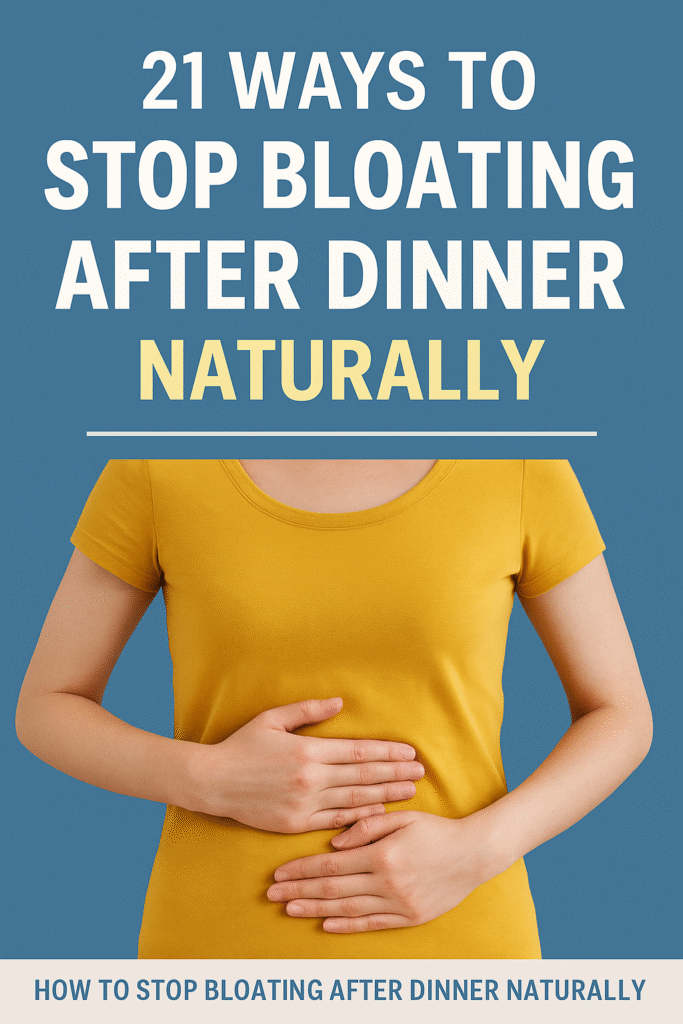
⚠️ Affiliate Disclaimer: This post may contain affiliate links, which means I may earn a small commission — at no extra cost to you — if you make a purchase through one of these links. I only recommend products or services I genuinely trust and believe can provide value. Thank you for supporting My Medical Muse!
Can You Get Pregnant on Your Period? 7 Key Facts Every Woman Should Know
Can You Get Pregnant on Your Period? The Complete Guide
Many women believe that having sex during their period is a “safe window” when pregnancy is impossible. While the chances of conceiving during menstruation are lower compared to other times in the cycle, it is not impossible.
To understand why, you need to look at the bigger picture, how the menstrual cycle works, how long sperm can survive in the reproductive tract, and how ovulation timing varies from woman to woman.
This guide dives deep into the science, myths, risk factors, and common questions surrounding period sex and pregnancy.
Understanding the Menstrual Cycle
The menstrual cycle is the natural monthly process that prepares a woman’s body for pregnancy. On average, it lasts about 28 days, but a healthy cycle can range from 21 to 35 days, because every woman’s cycle is slightly different and ovulation does not always happen “on schedule”, the chances of pregnancy during a period can vary.
Let’s break down the cycle into its four main phases.
1. Menstrual Phase (Day 1-5 on average)
This is the first stage of the cycle, beginning on the first day of bleeding.
- What happens: The uterus sheds its lining (endometrium) because the previous cycle did not result in pregnancy.
- Hormones: Estrogen and progesterone levels are at their lowest, signaling the body to “reset.”
- Symptoms: Menstrual cramps, bloating, mood swings, and fatigue are common.
- Pregnancy risk: Lowest at this time, but not zero especially if the cycle is short and ovulation comes earlier than expected.
2. Follicular Phase (Day 1-13)
The follicular phase overlaps with menstruation in its early days and continues until ovulation.
- What happens: The pituitary gland releases follicle-stimulating hormone (FSH), encouraging the ovaries to develop small sacs called follicles. Each follicle contains an immature egg, but usually only one will mature fully.
- Hormones: Estrogen rises steadily, helping the uterine lining rebuild and thicken in preparation for a possible pregnancy.
- Pregnancy risk: Fertility gradually increases toward the end of this phase as ovulation approaches.
3. Ovulation Phase (Around Day 14, but can vary widely)
Ovulation is the peak fertile stage of the menstrual cycle.
- What happens: A surge in luteinizing hormone (LH) triggers the ovary to release a mature egg.
- Timing: The egg survives for 12 to 24 hours. If sperm are present in the fallopian tubes, fertilization may occur.
- Fertility window: Because sperm can survive inside the female reproductive tract for up to 5 days, having sex in the days leading up to ovulation can also result in pregnancy.
- Pregnancy risk: Highest in this phase.
4. Luteal Phase (Day 15-28)
This phase begins after ovulation and lasts until the next menstrual period.
- What happens: The follicle that released the egg transforms into the corpus luteum, which produces progesterone. This hormone thickens and stabilizes the uterine lining to prepare for a potential pregnancy.
- If fertilization occurs: The embryo implants in the uterus, and hormone levels remain high to support pregnancy.
- If fertilization does not occur: The corpus luteum breaks down, progesterone levels drop, and the uterine lining sheds, leading to a new period.
- Pregnancy risk: Very low during this stage.
Why this matters: Even though ovulation usually happens around Day 14 in a 28-day cycle, not every woman has a textbook cycle. If ovulation happens earlier, sperm from sex during your period could still be alive when the egg is released, making pregnancy possible.
When Is the Fertile Window?
The fertile window is the period during which a woman has the highest chance of conceiving. It includes the day of ovulation and the five days leading up to it.
Here’s why:
- Sperm survival: Sperm can live inside the female reproductive tract for up to five days, waiting for an egg to be released.
- Egg survival: Once released, an egg is viable for only 12 to 24 hours.
- Timing overlap: If sex occurs just before ovulation, sperm may still be alive when the egg is released, resulting in pregnancy.
This means that if ovulation happens shortly after menstruation, sperm from sex during your period could still fertilize the egg.
Can You Get Pregnant on Your Period?
Short Answer: Yes, It’s Possible.
While the likelihood of conceiving during menstruation is lower than at other times, it is by no means impossible. Several biological scenarios can create conditions where pregnancy becomes a real possibility.
Reasons Pregnancy Can Happen During Periods
1. Short Menstrual Cycles
- Women with cycles shorter than 25 days often ovulate earlier than average.
- For example, if your cycle is 21 days long, ovulation may occur around Day 10.
- If your period lasts 5-6 days and you have sex toward the end, sperm could still be present when ovulation happens.
2. Long Periods
- Some women experience menstrual bleeding lasting 7 to 10 days.
- If ovulation follows soon after bleeding ends, sperm introduced during the last days of menstruation may still survive until the egg is released.
3. Sperm Longevity
- Healthy sperm can survive inside the female reproductive system for up to five days.
- This means that sex during the later part of menstruation can still lead to conception if ovulation occurs a few days later.
4. Irregular Cycles
- Women with irregular cycles may ovulate earlier or later than expected.
- Because ovulation timing is unpredictable, it becomes much harder to calculate “safe days.”
- In these cases, relying on the period as protection against pregnancy is especially risky.
5. Mistaken Spotting
- Not all bleeding is a true period. Some women mistake ovulation spotting or implantation bleeding for menstruation.
- If you have sex during this time, you may actually be at your most fertile.
- This is one of the reasons why pregnancy can sometimes occur unexpectedly when women assume they were “on their period.”
Even though the odds of pregnancy during menstruation are lower, they are never zero. Factors like short cycles, long bleeding, and irregular ovulation patterns make it entirely possible to conceive from period sex.
Pregnancy Chances: Day by Day During Period
While pregnancy during menstruation is less likely, the risk changes depending on which day of your period you have sex. Here’s a breakdown:
Day of Period | Likelihood of Pregnancy | Explanation |
Early Days (Day 1-2) | Very Low | Heavy bleeding and shedding of the uterine lining make it difficult for sperm to survive. The environment is generally hostile to fertilization at this stage. |
Mid-Period (Day 3-5) | Low to Moderate | Bleeding is lighter, making conditions less hostile. If you have a short cycle (21–24 days), ovulation may be just around the corner, increasing the chance of conception. |
End of Period (Day 6-7) | Moderate | The risk is higher, particularly for women with shorter cycles. Since sperm can live up to five days, intercourse at the end of menstruation may overlap with the fertile window if ovulation occurs soon after. |
The later into your period you are, the higher the chance that sperm may still be present when ovulation occurs—especially in shorter or irregular cycles.
Common Myths About Period Sex and Pregnancy
There are many misconceptions about fertility during menstruation. Let’s debunk some of the most common ones.
Myth 1: You can’t get pregnant during your period.
- Truth: While the likelihood is lower than at other times, it is still possible. Women with short cycles, long bleeding, or irregular ovulation patterns may conceive from period sex.
Myth 2: Heavy bleeding washes away sperm.
- Truth: Although menstrual blood creates a less favorable environment, sperm are remarkably resilient. Once they enter the cervix, they can travel upward to the fallopian tubes and survive for several days, long enough to fertilize an egg.
Myth 3: Irregular cycles don’t matter during menstruation.
- Truth: They matter a great deal. Women with irregular cycles can ovulate at unpredictable times, sometimes very close to menstruation. This makes calculating “safe” days unreliable and increases the chance of unexpected pregnancy.
Medical Conditions That Affect Fertility Timing
Certain health conditions can disrupt the regularity of the menstrual cycle and increase the likelihood of ovulating outside of the “typical” window. These include:
- Polycystic Ovary Syndrome (PCOS): A hormonal disorder that can cause irregular or absent ovulation.
- Thyroid Disorders: Both hyperthyroidism and hypothyroidism can affect hormone levels and alter cycle length.
- Perimenopause: Hormonal fluctuations during the transition to menopause often cause unpredictable cycles, making ovulation difficult to track.
- Fibroids or Endometriosis: These conditions may lead to abnormal bleeding, which can be mistaken for a period, confusing cycle tracking and fertility awareness.
If you have any of these conditions, your risk of pregnancy from period sex may be higher than you expect, since your ovulation timing can shift unpredictably.
Period Sex: Other Considerations
Having sex during your period is a personal choice, and it comes with both benefits and drawbacks. Understanding these can help you make an informed decision.
Pros of Period Sex
- Relieves menstrual cramps: Orgasms release endorphins, the body’s natural painkillers, which can ease cramps and improve mood.
- Increases intimacy: For some couples, period sex fosters greater closeness and comfort in the relationship.
- Heightened arousal: Some women report stronger sexual desire during menstruation due to hormonal fluctuations and increased pelvic blood flow.
- Natural lubrication: Menstrual blood can act as a lubricant, potentially making intercourse more comfortable.
Cons of Period Sex
- Higher risk of STIs: Blood can carry viruses, and the cervix is slightly more open during menstruation, which increases the chance of transmitting or contracting sexually transmitted infections (STIs).
- Messiness: Period sex can be messy and may require extra preparation (towels, condoms, or shower sex) to manage.
- Pregnancy risk still exists: As discussed earlier, sperm can survive long enough to fertilize an egg if ovulation occurs soon after menstruation.
- Possible discomfort: Some women may experience increased sensitivity, cramping, or irritation during intercourse on their period.
Preventing Pregnancy During Your Period
If you’re not trying to conceive, it’s important not to rely on your period as a form of natural birth control. Safer and more reliable options include:
- Condoms: Provide protection against both pregnancy and STIs, making them especially important for period sex.
- Birth Control Pills: Regulate menstrual cycles, suppress ovulation, and significantly reduce pregnancy risk when taken correctly.
- Intrauterine Devices (IUDs): Highly effective, long-term contraception that works regardless of cycle timing.
- Emergency Contraception: Pills like the morning-after pill can reduce the risk of pregnancy if taken within 72 hours (some types work up to 5 days after unprotected sex).
Combining condoms with another contraceptive method provides the best protection against both pregnancy and STIs.
Who Is Most at Risk of Getting Pregnant on Their Period?
While pregnancy during menstruation is possible for any woman, certain groups are at higher risk:
- Women with short cycles (less than 25 days): Ovulation occurs earlier, so sperm from period sex may still be present when the egg is released.
- Women with long periods (lasting 7 days or more): Extended bleeding increases the chance of overlapping with the fertile window.
- Women with irregular cycles: Unpredictable ovulation makes it difficult to know when you’re fertile.
- Women not tracking ovulation: Without monitoring cycles, it’s easy to misjudge “safe” and “unsafe” days.
If you want to avoid pregnancy, it’s best to use contraception consistently even during your period.
Signs of Pregnancy After Period Sex
If you’ve had unprotected sex during your period and are worried about pregnancy, it’s important to know what to look out for. Early pregnancy symptoms can sometimes be subtle and easy to confuse with PMS, but the following signs are common:
- Missed period: The most obvious and reliable early sign of pregnancy.
- Breast tenderness or swelling: Hormonal changes may cause soreness, sensitivity, or heaviness in the breasts.
- Fatigue: Rising progesterone levels can make you feel unusually tired or sluggish.
- Nausea (morning sickness): Some women experience nausea as early as two weeks after conception.
- Implantation bleeding: Light spotting can occur 6-12 days after fertilization, which some women mistake for an early or light period.
A home pregnancy test can usually detect pregnancy about two weeks after ovulation, or shortly after a missed period. For the most accurate results, test in the morning when hormone levels are most concentrated.
Expert Opinions
Most gynecologists agree on one key point: no day of your cycle is 100% safe from pregnancy without contraception. While the odds are lower during menstruation, biology is unpredictable. Factors like sperm longevity, early ovulation, and irregular cycles mean pregnancy can still happen.
Healthcare professionals emphasize that relying on your period as birth control is risky. If avoiding pregnancy is your goal, consistent use of reliable contraception is the safest approach.
FAQs: Can You Get Pregnant on Your Period?
1. How likely is pregnancy on your period?
- Early days (Day 1-2): Very low risk.
- End of period (Day 6-7): Moderate risk, especially with short or irregular cycles.
2. Can sperm really survive in menstrual blood?
Yes. Despite the presence of blood, sperm can live up to 5 days in the female reproductive tract, which is long enough to reach and fertilize an egg if ovulation follows soon after.
3. Does period length affect pregnancy chances?
Absolutely. Longer periods increase the chance of overlapping with ovulation, particularly for women who ovulate earlier in their cycle.
4. Is period sex safe?
Generally, yes but it comes with a higher risk of STI transmission because the cervix is slightly more open and blood can carry infections. Using condoms can help reduce this risk.
5. Can I use period sex as birth control?
No. Period sex is an unreliable and risky method of contraception. Pregnancy is less likely during menstruation, but not impossible.
6. Should I take emergency contraception if I had period sex?
If you’re concerned about pregnancy, yes. Emergency contraception (like the morning-after pill) is most effective when taken within 72 hours of unprotected sex, but some types remain effective up to 5 days after. It’s especially recommended for women with short or irregular cycles.
Key Takeaways
- Pregnancy during your period is unlikely but not impossible. While chances are lower in the early days of menstruation, the risk increases toward the end of bleeding, especially with short or irregular cycles.
- Sperm survival matters. Because sperm can live inside the female reproductive tract for up to five days, sex during your period can still result in pregnancy if ovulation follows soon after.
- Cycle length and irregularities raise the risk. Women with cycles shorter than 25 days, long periods, or unpredictable ovulation are more likely to conceive from period sex.
- Period sex is not birth control. Relying on menstruation as a “safe window” is unreliable.
- Contraception is key. Condoms, birth control pills, IUDs, or other methods provide consistent protection against pregnancy and STIs at any point in the cycle.
Conclusion
So, can you get pregnant on your period? The answer is yes though the odds are lower than during ovulation, it is still very possible. Factors such as sperm survival, short menstrual cycles, and irregular ovulation make period sex an unreliable method of contraception.
If you are sexually active and not trying to conceive, the safest approach is to use protection consistently, regardless of the time in your cycle.
Remember, every woman’s body is unique. Tracking your periods, learning to recognize fertile signs, and speaking with a healthcare provider can give you a clearer understanding of your reproductive health. Armed with this knowledge, you can make informed decisions about intimacy, contraception, and family planning with confidence.
👩⚕️ Need Personalized Health Advice?
Get expert guidance tailored to your unique health concerns through MuseCare Consult. Our licensed doctors are here to help you understand your symptoms, medications, and lab results—confidentially and affordably.
👉 Book a MuseCare Consult NowRelated Blog Post You Might Like:
- Is It Normal to Have Two Periods in One Month? 7 Key Facts You Must Know
- Why Do I Get Cramps but No Period? 10 Causes and Effective Solutions
- 10 Powerful Ways to Tell PMS Apart from Early Pregnancy Symptoms
- Brown Discharge Before Period: 7 Alarming Causes & When to Worry
- 10 Powerful Reasons Why Your Period Is Late but Pregnancy Test Is Negative
- 10 Essential Facts Every Woman Must Know About Ovarian Cysts
Dr. Ijasusi Bamidele, MBBS (Binzhou Medical University, China), is a medical doctor with 5 years of clinical experience and founder of MyMedicalMuse.com, a subsidiary of Delimann Limited. As a health content writer for audiences in the USA, Canada, and Europe, Dr. Ijasusi helps readers understand complex health conditions, recognize why they have certain symptoms, and apply practical lifestyle modifications to improve well-being


